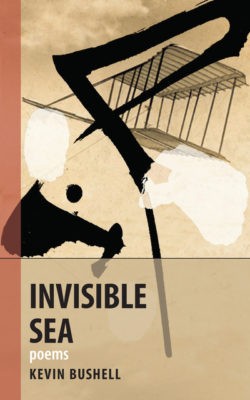Kevin Bushell’s Invisible Sea
A review of Invisible Sea by Kevin Bushell
Published on July 4, 2022

Invisible Sea
Kevin Bushell
DC Books
$19.95
paper
100pp
9781927599570
Of course, the problem of human flight is not limited to mechanics and historical narrative. Bushell gestures towards flight as vocation and hubris in a tone equally reverent and casual, though some pieces work more than others to foster this paradoxical sense “not of flight but falling.”
In the end, Bushell achieves what he sets out to do: write a history of flight and aerodynamics. The drama of this “ageless problem” occasionally verges on the didactic, as the collection’s strength remains its research; if the poetry is straightforward where it might be more formally engaging, it is suitable to Bushell’s historical angle and fictional undertaking.mRb
Emma Telaro is a writer and reader living in Montreal. She is the Associate Director of AELAQ.







0 Comments